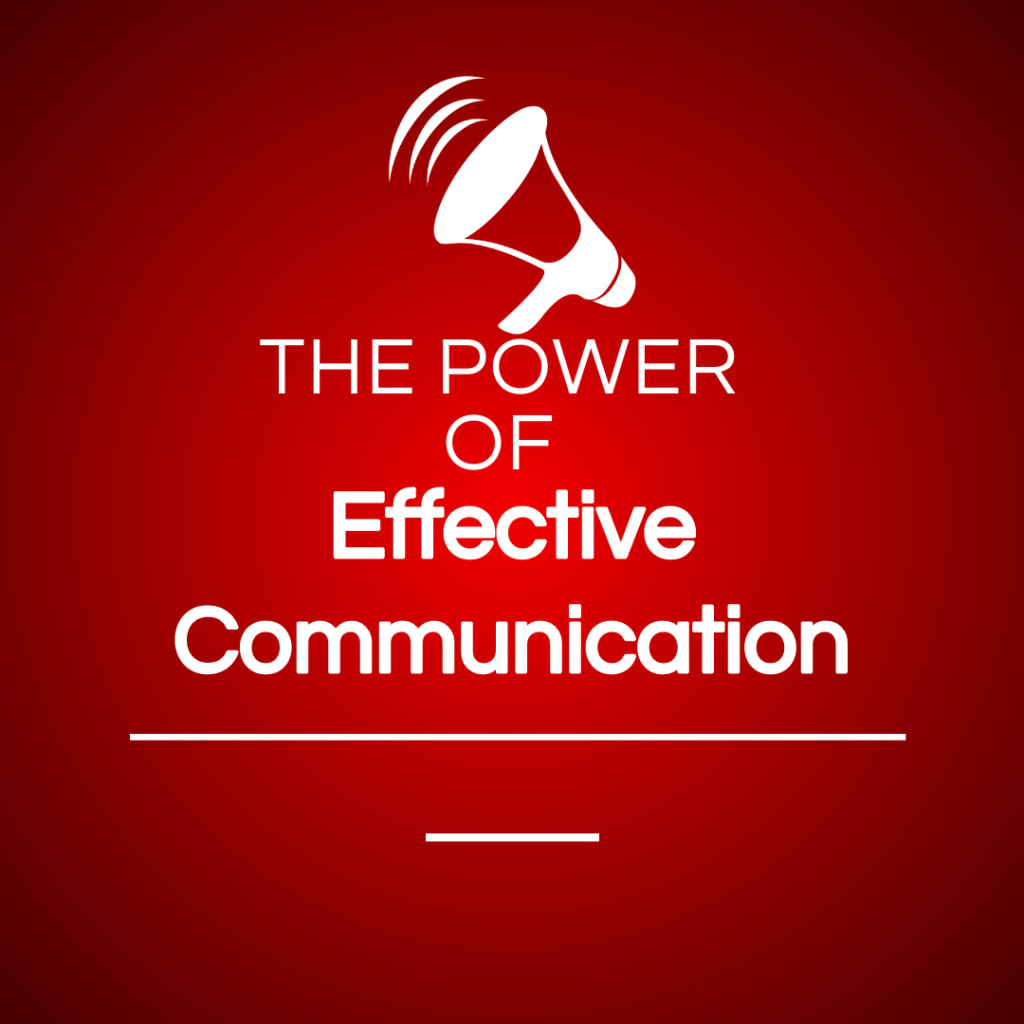The Art of Effective Communication
Building Stronger Relationships

Effective communication is the cornerstone of building strong and meaningful relationships. It is the art of expressing oneself clearly, listening attentively, and fostering understanding. In this article, we delve into the strategies and techniques that can help us master the art of effective communication. Get ready to enhance your communication skills and cultivate deeper connections with others.
Active Listening
Active listening is a fundamental skill in effective communication. It involves giving your full attention to the speaker, being present in the moment, and truly understanding their perspective. Practice active listening by maintaining eye contact, nodding, and providing verbal and non-verbal cues to show that you are engaged. Avoid interrupting and refrain from formulating responses in your mind while the other person is speaking. Genuine listening fosters trust, empathy, and deeper connections.
Clear and Concise Expression
Effective communication requires clear and concise expression. Use simple and straightforward language to convey your thoughts and ideas. Structure your sentences logically and organize your thoughts before speaking. Be mindful of your tone and body language, ensuring that they align with your intended message. Avoid jargon or overly technical terms that may confuse the listener. Clarity and simplicity in your expression enhance understanding and minimize misinterpretations.
Empathy and Understanding
Empathy and understanding are essential elements of effective communication. Put yourself in the other person's shoes and seek to understand their emotions, experiences, and perspectives. Show genuine empathy by acknowledging their feelings and validating their experiences. Practice patience and avoid jumping to conclusions or making assumptions. When people feel heard and understood, it strengthens the connection and fosters a safe space for open and honest communication.
Non-Verbal Communication
Non-verbal communication plays a significant role in effective communication. Pay attention to your body language, facial expressions, and gestures. Maintain an open and welcoming posture, make eye contact, and smile genuinely. Be aware of the non-verbal cues of the other person, as they often provide additional context and meaning to their words. Aligning your non-verbal cues with your verbal communication creates a sense of congruence and enhances understanding.
Practice Mindful Communication
Mindful communication involves being fully present and aware during interactions. Cultivate mindfulness by focusing on the conversation at hand, setting aside distractions, and being non-judgmental. Be mindful of your own emotions and reactions, taking a pause when needed to respond thoughtfully rather than reactively. Mindful communication nurtures deeper connections, reduces misunderstandings, and promotes a sense of mutual respect and understanding.
Constructive Feedback and Conflict Resolution
Effective communication involves the skill of providing constructive feedback and resolving conflicts in a healthy manner. When giving feedback, be specific, focus on behaviors, and offer suggestions for improvement. Approach conflicts with a willingness to understand the other person's perspective and find common ground. Use "I" statements to express your feelings and needs, and actively listen to the other person's viewpoint. Seek resolutions that are mutually beneficial and promote harmony.
Cultivating Openness and Flexibility
Effective communication thrives in an environment of openness and flexibility. Foster a safe space where individuals feel comfortable expressing themselves and sharing their thoughts and feelings. Be open to feedback and different perspectives, recognizing that everyone has unique experiences and insights. Cultivate flexibility in your communication style, adapting to the needs and preferences of others. Embracing openness and flexibility encourages collaborative and constructive communication.
Mastering the art of effective communication is a lifelong journey that enriches our relationships and deepens our connections with others. By practicing active listening, expressing ourselves clearly, cultivating empathy, utilizing non-verbal communication, embracing mindfulness, providing constructive feedback, and fostering openness and flexibility, we can build stronger relationships based on understanding and respect. Invest in honing your communication skills, and witness the transformative impact it has on your personal and professional interactions.
About the Creator
CHARLES ANTWI
I am experienced article writer who specializes in creating engaging and informative content across various niches. With a focus on SEO optimization, viral keywords, and intriguing topics, I strive to deliver articles that captivate readers






Comments
There are no comments for this story
Be the first to respond and start the conversation.